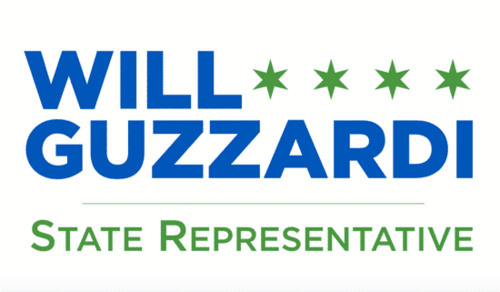Let's talk about sex work
Dear Neighbor,
Last week I spoke at a press conference announcing a new legislative effort to decriminalize adult consensual sex work. I want to talk about what that means and why I'm trying to make it happen.
You might have an image in your mind of what sex work looks like, probably from movies or pop culture. Maybe it's happening late at night, with clients cruising up and down a dark street and workers tapping on their car windows. Maybe there's an abusive, violent "pimp" watching over their shoulders, forcing them into a life they're desperate to leave.
Some sex work does look like this. And we absolutely oppose and will not legalize abuse, coercion, or trafficking.
But sex work is lots of other things too. It's happening in homes, shared workplaces, high-end hotel rooms. It's advertised on various online platforms. Lots of sex workers are running their own businesses. Numbers are very hard to come by, but it's generally believed that 15-20% of American men have paid for sex, and that they're distributed pretty evenly across geographic and socioeconomic groups. That means that — although you might be surprised to hear it — you almost certainly know someone who has bought or sold sex.
Although it's ubiquitous, it's deeply stigmatized work, and as a result it's incredibly dangerous for workers. Again, good data is hard to come by, but by some accounts more than 50% of sex workers are abused at some point in their careers. The murder rate of sex workers is 10-20 times higher than that of the general public. And it's especially dangerous for trans people: of the 320 trans people murdered in 2023, fully one-quarter of them were sex workers.
There's no single answer to ending this epidemic of violence. But research from around the world tells us — and the community of current and former sex workers tells us — that there's one big change we need to make: fully decriminalizing the exchange of sex for money between two consenting adults.
This means removing criminal penalties for adults engaging in consensual sex work. This will allow workers to step out of the shadows. They can vet their clients. They can meet in safe places. When their clients become dangerous or violent, they can avoid them, or call in law enforcement if needed, without fear of consequences in their own lives.
And when law enforcement isn't focused on sting operations to bust consenting adults having sex, they can dedicate their resources to the real crimes: trafficking, sexual violence, and the victimization of minors.
For all these reasons and more, a vast coalition of groups has come together to support this initiative. Abortion rights groups like the Chicago Abortion Fund that believe in bodily autonomy. LGBTQ+ rights groups like Equality Illinois that feel an imperative to end violence against trans people. Anti-trafficking groups like Freedom Network USA who recognize the difference between consenting sex work and trafficking, and think the law should too. The AIDS Foundation. The National Immigrant Justice Center. The World Health Organization. All these groups see the harm that criminalization is doing, and they all support our efforts.
I know this conversation may be uncomfortable for some of you. Some of you may think I'm wrong to propose this — and I want to hear from you! But I think it's really important that we talk about it. Destigmatizing sex work is central to the safety and survival of sex workers. I think it's important for us to say it out loud: Sex work exists. Sex work is work. Sex workers deserve safety. And the government shouldn't tell two consenting adults what they're allowed to do with their bodies.
More to come on other parts of my legislative agenda soon!
Until then, all my best—
Will
Secretary of State Pop-up
Rep. Will Guzzardi, Sen. Graciela Guzman, Comm’r Anthony Quezada, and Ald. Ruth Cruz are partnering with the Secretary of State's office to put on a Mobile Secretary of State Pop-up at Kilbourn Park, 3501 N Kilbourn Ave. on Friday, March 7 from 10am to 2pm. Find out more information, and sign up for an appointment here: bit.ly/SoS2025NWS.
2025 Peggy Montes Unsung Heroine Awards
The Cook County Commission on Women’s Issues is now accepting nominations for the 2025 Peggy Montes Unsung Heroine Awards. Nominate someone special today whose impactful work has shaped the social, cultural, economic, and political fabric of Cook County, but hasn’t received widespread recognition. Submit your nomination here tinyurl.com/2025heroine by Friday, January 31.
Greater West Town Project Trainings
The Greater West Town Project is gearing up for the start of new classes in 2025. For decades, these programs have successfully equipped community residents with technical, in-demand skills and placed them in jobs in their industries with decent wages. The courses include basic math and reading skills, lifting the academic proficiency of students; as well as career readiness classes to aid participants in a successful job search. Job placement services and transportation assistance are included.
Eligibility Requirements:
18+ years of age
Illinois resident
And training is at no cost to eligible applicants!
New Class Start Dates:
Shipping & Receiving Training - February 10
Wood Products Manufacturing Training - March 3
Men's Group in Spanish at LoSAH Center of Hope
Join this 10-week men's circle, for ages 25-45, that will focus on exploring topics that are particularly relevant to men, such as fatherhood, relationships, career pressures, health issues and other life transitions. The circle will explore healthy masculinity through conversations about redefining masculinity in a positive and inclusive way, addressing stereotypes, machismo and encouraging healthy behaviors. The group begins on Wednesday, February 19, from 5:30 to 7pm at 3555 W Armitage Ave.






